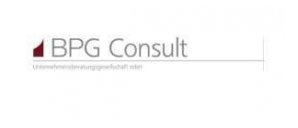
How to choose a tax advisor in Poland
Choose a tax advisor in Poland
The job of a tax adviser involves, among other things, providing advice to taxpayers, and tax collectors in connection with issues relating to tax and customs law, including public and legal obligations. Therefore it is extremely important to choose a an adviser who specializes in business taxation. Finding a proven professional partner is therefore quite a challenge. An inseparable element of this free profession, as set out in the Act on Tax Advisory Services of July 5, 1996, is public trust.
Qualifications and knowledge of the industry
A competent tax advisor should be characterized not only by their academic education, but above all by their extensive knowledge in the field of broadly understood financial law. Taxation is and the legal regulations, that are set out in the various tax laws, are constantly changing. Any advisor working in this field should be knowledgeable about current tax changes, both indirect and direct.
Within the meaning of art. 6 of the Tax Advisory Services Act, a candidate for a tax advisor should be a person of impeccable character who, based on their previous conduct, provides a guarantee of the proper performance of the profession. This provision can be translated into reality, because honesty, responsibility and reliability are the qualities that should be synonymous with this profession.
Responsibility for work performed
Financial matters are complicated in nature, which is why it is easy for mistakes to be made, both on the part of the entrepreneur and the tax advisor. For this reason, it is also worth checking that the advisor has the required compulsory civil liability insurance. Once this fact has been confirmed, it is reasonable to include the necessary information regarding liability in the cooperation agreement. Therefore, in order to avoid exposing the company to losses, it is also important to verify the references or to contact and verify the companies that worked with the given advisor before signing any documents.
Experience, sense and industry
Experience is also of great importance for the work of a tax advisor. Experience combined with knowledge gives measurable benefits when dealing with tax regulations. Knowledge of the industry in which the client operates is also extremely important as it allows an advisor to propose numerous tax optimization options even without examining the company's profile. Accurate analysis gives the ability to find more accurate and more adequate solutions, but based on experience, an advisor can draw initial conclusions that provide a holistic understanding of the matter. Professional experience can also contribute to a better understanding of financial liquidity processes, sales performance figures or payment methods for goods and services, adequate to the company profile.
Finding and starting cooperation with an involved and competent tax advisor will certainly lead to a greater potential for innovative changes and, consequently, for achieving a reduction in costs. Therefore it is worth checking the qualifications of any potential partner so that outline of the cooperation is fully transparent.
return










